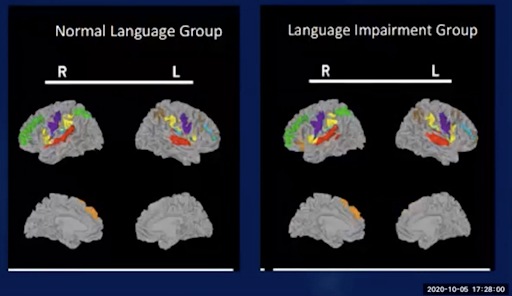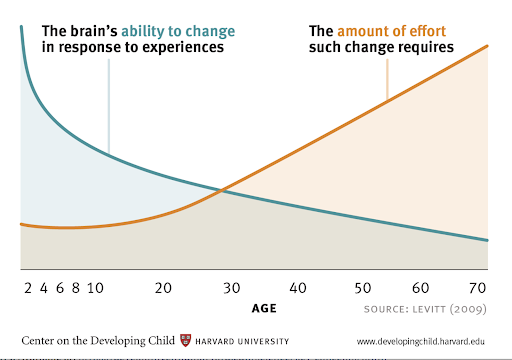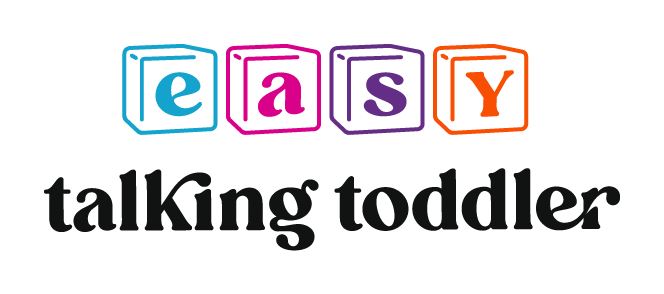As a speech-language pathologist and parent of late talker, I know what it is like to be a parent waiting for your child to begin to start saying words, or more words. You might be very worried. Below is the crucial information I think you need to know.
Key Points
How to manage your worry: Be patient, be engaged, get educated and be open.
The best way to help your child is to boost quality language input through interactions with peers and caregivers.
Late talking toddlers may have difficulty with reading later, so trying to improve language early is important.
Table of Contents
What is a later talker
Developmental Milestones: What is normal
Late talkers, when to worry?
Will my child catch-up on their own?
How to Help Your Child If they are a Late Talker
Howl late is too late for a toddler to talk?
Screen time
What is a late talker?
A late talking child is usually defined as a child who is 18 to 30 months old who has a smaller than expected vocabulary for their age. (Hanen Centre)
Developmental Milestones: What is normal?
10 month old not talking = is not considered delayed. However if a there are other concerns such as not “connecting” socially, they should be seen by a professional. (see article on Toddlers with Autism)
How many words does a 12 month say= 1-3 words average
How many words should a 13 month old say= 16 words average
How many words should a 15 month old say= 24 words average
How many words should a 16 month old say= 27 words average
How many words should a 18 month old say=34 words average Below 11 words a concern
How many words should a 21 month old say= 171 words average Below 23 words a concern
How many words should a 2 year old know = 297 average Below 50 words a concern
3 year olds should speak in full sentences
A 4 year-old should speak with sentences resembling adult grammar.
(source: Macarthur-Bates Developmental Inventory).
What percentage of toddlers are late talkers?
13-20% of 2 year olds (Late Language Emergence at 24 Months: An Epidemiological Study of Prevalence, Predictors, and Covariates | Journal of Speech, Language, and Hearing Research)
That is quite a larger number of children.
What can cause late talkers?
If a child is starts talking later than expected, it may be a due to difference in development and the child will catch-up in time, or it may be the sign of a disability. The diagnosis that I would want to investigate further are: hearing impairment, autism, childhood apraxia of speech and cognitive delay. Therefore, one of the first recommendations is to have a child evaluated by a speech-language pathologist or pediatrician.
Late Talker When to Worry?
As an SLP, I’m not only concerned about the immediate effects of a speech delay—such as increased frustration due to difficulty expressing needs and challenges with social interactions—but also about potential long-term impacts on language development. Children who are late to talk may face difficulties with literacy and language skills as they enter kindergarten. It’s completely understandable to feel concerned as soon as you notice a delay in language development. The reason I emphasize this is that early awareness leads to earlier intervention, which can make a significant difference in supporting a child’s communication skills and overall growth.
Will my child catch-up? Can’t I just wait and see?
Some children who are late talkers might not have a clear cause for their delay. In many cases, they will catch up to their peers by ages 5, 6, or 7. However, a significant number do not catch up. Estimates suggest anywhere between 6% and 44% of late talkers will continue to experience language difficulties as they grow older. (Dale, Price, Bishop, &Plomin, 2003; Rescorla, 2002).
How to Help Your Child if They Are a Late Talker
The following advice is expanded from my conversation with the Easy Talking Toddler guest blogger and family psychologist, Eddie Ornelas, Ph.D.
1. Be patient.
Children can learn language in spurts. The biggest jump happens between the ages of 2 and 3 years-old. Children with speech delay can improve significantly before 5 years-old.
In fact, approximately 50% of 3 year-olds who are behind at 3 catch up by the time they are 5. In fact, it could be that the improvement you want to see isn’t until they are 6 or 7 years old.
2. Be engaged.
Spend as much time as possible with your child 1-on-1 playing, reading, singing and reducing screen time to no more than 30 minutes a day or none at all! ( I have a Youtube video discussing what happened when I changed our screen time.). If you are working with a speech-language pathologist, be involved with your child’s treatment plan and look for an SLP that welcomes collaboration. You should also be with your childs’ life- teachers and pediatrician.
3. Be open.
Some activities might seem silly or “common sense” or even “just playing.” This is often the case, but often there are little changes you can make in how you do common activities, such as how you read books or how you play with your child, that will make a big difference. There is also the question of “intensity.” Most times children with language delays do not learn in different ways than kids without language delays. That is to say, there are study by that show that when kids with language delays learn vocabulary, the same parts of their brain light up on pet scans. Link

The difference is that kids with language delays need many more presentations with a vocabulary word to learn it.
4. Parent Education
Invest in parent education. This can be through attending an in-person class, reading a book on late talkers or taking an online course that demonstrates the specific speech exercises you need to do. The more you know, the more you can help your toddler.
How to Help Your Child with Language Delay at Home?
Children learn language through millions of interactions with people. The most important thing to remember is that your child will benefit from an increase in quality and focused language they hear. The reason for this is that kids learn language by “cracking” the code of language. By increasing the amount of quality language that your child interacts with, the easier it will be to learn new words.
Common Ways to Introduce Quality Language Input
You may read advice that says “talking more “ to your child is the best way to help them to start talking. But, it isn’t that simple. It’s like doing general exercise and working out with a personal trainer.. Yes, working-out is needed, but a focused approach based on science is more effective.
Look for ways to increase the amount of language your toddler actively listens to and experiences. “Active participation” means your child is interacting with a people and not just passively listening to a video or toy. You child needs to answer questions when you are engaging in screen time, hear and, listen to songs through out the day, read books with an adult and play with an adult or peer. Children learn language from other people, not by watching a screen.
Excellent activities to teach your child vocabulary include:
- Shared book reading
- Physical play
- Play with toys
- Crafts
- Chores
- Cooking
- Singing
- Water play
- Dressing
Speech delay 2 year old
If a 2 year-old is behind, it is hard to determine if they will catch-up or not. It isn’t until they are older, such as 3 and 4, that statistically, toddlers start to show less opportunity for spontaneous recovery. Link. The reason for this is that the age of 2, the range of normal is very wide. However, as a parent, this isn’t much comfort, but it does give you a reason not to panic.
How late is too late for a toddler to talk?
As soon as you are concerned, I recommend you speak with your pediatrician. Toddlers’ brains are developing very fast, with 90% of a child’s brain developing by 5 years-old. The chart below shows how a child’s brain responds to experiences at a young age.

Is it normal for a 3 year old to not talk yet?
According to the American Speech-Language-Hearing Association (ASHA) guidelines, a typical 3-year-old child should have a vocabulary of about 1,000 words, enabling them to form 3- to 4-word sentences and effectively communicate their basic needs and wants.
Screen Time
If you do screen time, it should be joint screen time when you make comments and ask questions about the action on the screen. The ADA recommends less than 60 minutes of screen time a day for toddlers 18-24 months and that time should be focused on high quality programs that viewed with a parent.
Can a child be a late talker and not autistic?
Yes. In fact, most kids who are late talkers are not autistic. However, difficulties with communication are one of the early identification symptoms of Autism. Read our article about early signs of Autism in toddlers.
By Guy Garcia, MA., CCC-SLP
